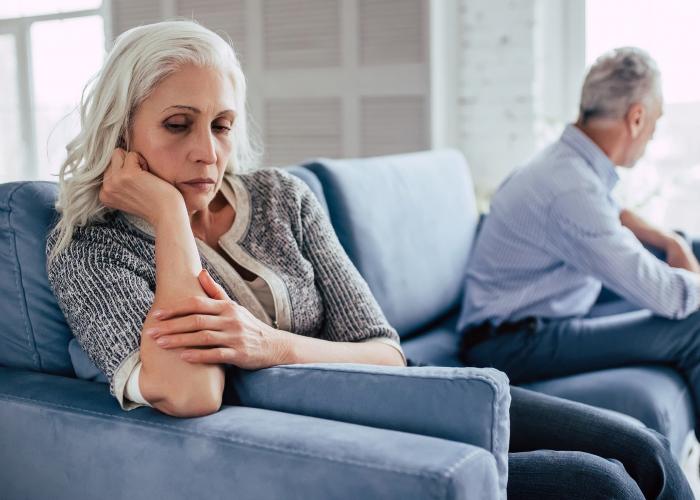In 2021, the Office of National Statistics (ONS) reported that "the police made 33 arrests per 100 domestic abuse-related crimes in the year ending March 2021" (ONS.gov.uk). It's not always physical abuse that domestic abuse victims experience, but there are many other forms of domestic abuse such as coercive control, harassment or emotional abuse which can affect a person's wellbeing. That's why it's important for anyone who suspects they may be a victim of domestic abuse to take action and get help as soon as possible.
Lund Bennett Law is a team of specialists who can provide you with advice and support you with your application for a non-molestation or occupation order. If you are being subjected to domestic violence, call Lund Bennett Law on 0161 924 0079 right away.
Family Problems? We can help.
Speak to our specialist family lawyers for fixed price advice and guidance
You will get..
- Best advice on all family law matters
- Support and guidance on next steps
- Transparent pricing and fixed fee's available

Call us now on:
01619240079
How can we help?
Contact us for an initial consultation
FAQs
Domestic abuse and domestic violence are all terms used to define a pattern of abusive behaviour that can occur in an intimate or family relationship. The domestic violence definition has changed over the years and there is no longer a gender bias attributed to domestic abuse. However, domestic abuse does not discriminate against one's gender or race.
Abuse can happen to anyone and domestic abuse is prevalent in relationships where another person has control over the victim. Domestic violence occurs when one party uses threats, intimidation or physical harm to control their domestic partner. Domestic violence is not only physical abuse but also includes verbal, emotional and sexual abuse.
A non-molestation order limits the behaviour of domestic abusers or "respondents" towards specific domestic individuals or family members. A domestic abuser who breaks this court order may be arrested for committing a criminal act of domestic violence.
An occupation order limits who can live in your home or apartment whether you want to remain living there or not. This type of court order also prevents domestic abusers from entering your residence against a restraining order. An occupation order does not provide you with a new home, but it can prevent domestic abusers from returning to your home and causing further threats or violence.
A non-molestation order is a legally enforceable court order allowing you to seek the help of the police and others to protect yourself and your children. If you believe someone you are in a relationship with, a family member, or somebody you currently live with or have lived with is abusing you, you can apply for a non-molestation order.
You can make your application if you are the victim of domestic violence and abuse, if you're suspecting a family member to be the domestic abuser or if you're a person with parental responsibilities for children aged 0 to 15 years old.
If you are a victim of domestic violence and meet the following criteria, you may apply for an occupation order:
- Your former spouse or civil partner paid the rent or owns your current home in which you lived together.
- Your former spouse or civil partner and you intended for your home to be a marital home.
- Your former partner and you intended to inhabit your rented or owned home.
- Your future spouse, civil partner or co-parents intended to share your home.
You can apply for a non-molestation order or an occupation order under the Family Law Act 1996. You will be required to complete an application form and prepare a statement explaining your situation, although there is no fee. To assist your request, you might want to seek assistance from professional family solicitors like Lund Bennett Law. To speak to our team about your application form, call us on 0161 924 0079 or request a callback.
If the domestic abuser does not abide by the court order, this is a criminal offence under the Family Law Act 1996 and can result in police intervention. If police are involved, domestic abusers may face fines or imprisonment due to breaching non-molestation orders.
In England and Wales, the court will list a hearing to determine whether an order should be made. The court can make an order either on notice or without giving notice to the respondent. If the court makes an order, to ensure that it is enforceable, it will need to be personally served on the respondent by an independent process server. In certain circumstances, the court can dispense with the requirement of personal service and can direct service by electronic means.
At Lund Bennett Law we have highly experienced domestic abuse solicitors that can help you apply for non-molestation or occupation orders. Our legal experts will ensure that the process runs smoothly and quickly to ensure your safety within your home. If you are or have been a victim of domestic violence in England and Wales, call Lund Bennett Law on 0161 924 0079 or request a callback.
We pride ourselves on giving you the attention you deserve
We understand you may need reassurance and emotional support at the outset and throughout the process.
Contact us on 0161 924 0079 for your no-obligation consultation.
Related services
We offer our clients a wide range of family law related services.




















